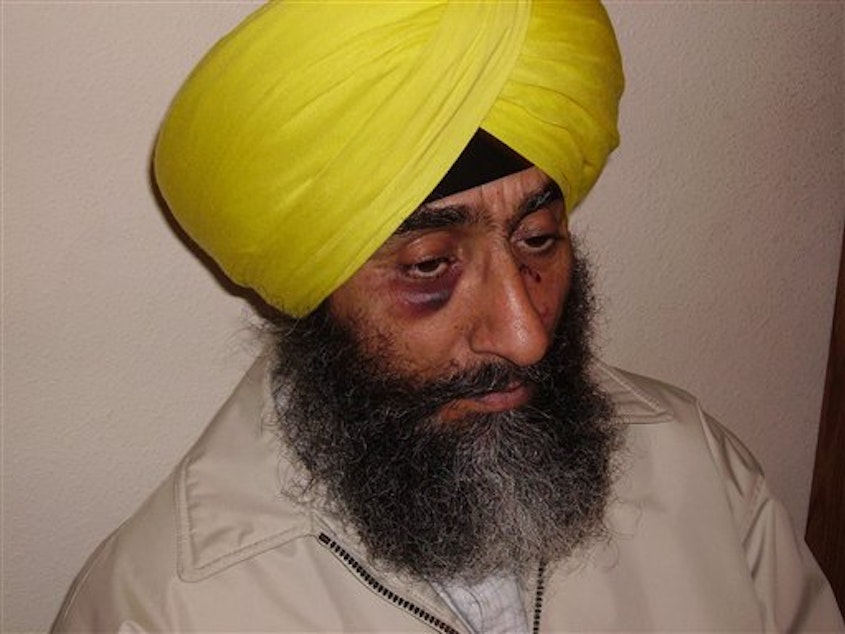Federal Prosecution Adds Stiff Penalty To Hate Crime Charge

It’s a story you may have heard before: A drunk guy gets in a cab. His driver has dark skin, a beard and a turban. The passenger calls the driver racial names and beats him so viciously, the driver lands in the hospital and the passenger goes to jail.
Two cases just like that have made headlines in Seattle since 9/11. The first was in 2007. The assailant in that case, Luis Vazquez, pleaded guilty to state charges. He was sentenced to nine months in jail and ordered to pay $500 restitution.
The second case stems from an attack in 2012. Jamie Larson is charged with beating a cab driver in Federal Way last October. A police report says Larson knocked out Kashmira Hothi’s tooth and punched him so hard he vomited. The report says Larson ripped out Hothi’s beard and called him an “Iraqi raghead.”
In 2009, after the first attack and before the second one, “the law changed,” said Assistant US Attorney Bruce Miyake.
That changes everything for Larson, who today was charged and arrested under the federal hate crime law known as the Shepard-Byrd Act. He faces up to 10 years in prison.
Sponsored
Miyake said before the Shepard-Byrd Act, he would have had to prove that a hate crime had been intended to deprive the victim of a federal right like working or voting. But under the Shepard-Byrd Act, Miyake said, “if a person attacks someone because of their race, national origin, or color, and the person is injured, that’s all we have to prove.”
The Shepard-Byrd Act is named after Matthew Shepard and James Byrd. Both men were murdered in separate attacks in 1998 that prosecutors said had been motivated by bias. Shepard was gay and Byrd was black.
Court documents in Larson’s case say Hothi is from India and practices Sikhism, like the cab driver who was attacked in 2007.
Hardeep Singh Rekhi is a Seattle attorney. He helped publicize a vigil for the man who was attacked in 2007. Both Rekhi and Miyake said attacks like these rattle everyone who feels threatened by them. Rekhi said by going after hate crimes, federal prosecutors can make people feel safe. “I think that that’s what our government is there to do,” he said. “And by stepping in, they’re doing that.”
Rekhi and other Sikhs are asking the FBI to track hate crimes more closely and to document how many attacks are motivated by hatred of specific groups.
Sponsored
Attacks motivated by someone’s actual or perceived sexual orientation, gender, gender identity or disability can also be prosecuted under the Shepard-Byrd Act.

